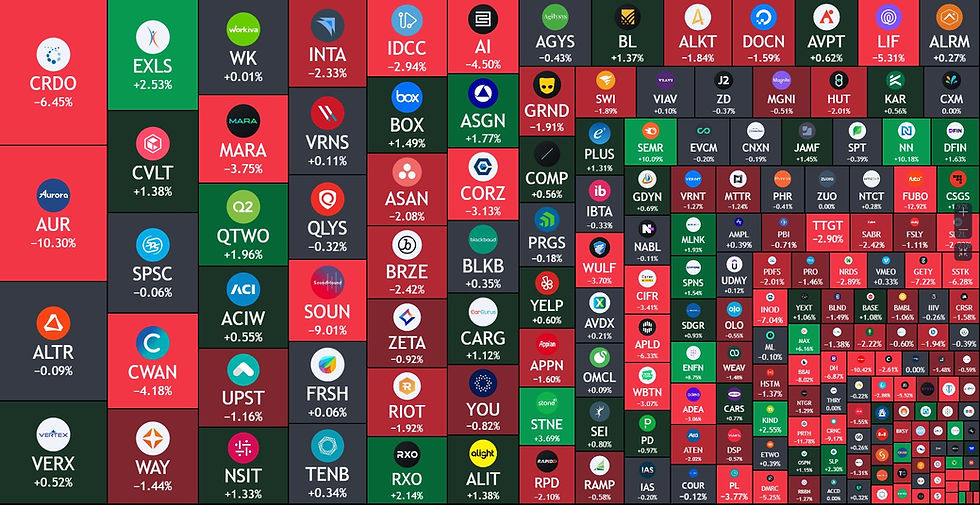Technological Sovereignty: The New Frontier of Global Power in 2025
- The Underground Trading Community Team

- Jan 14, 2025
- 2 min read
As we navigate the complex geopolitical landscape of 2025, the concept of technological sovereignty has emerged as a critical factor shaping global markets and international relations. Nations are increasingly recognizing that control over key technologies is not just an economic asset but a fundamental aspect of national security and global influence.

The race for dominance in artificial intelligence, quantum computing, 5G (and now 6G) networks, and semiconductor manufacturing has intensified, leading to a new form of global competition. Countries are implementing policies to protect and nurture their domestic tech industries, often at the expense of global cooperation and free trade principles.
This push for technological self-reliance has led to the fragmentation of global tech ecosystems. The internet, once seen as a unifying global platform, has become increasingly balkanized, with different regions operating under divergent regulatory regimes and technological standards. This “splinternet” phenomenon has profound implications for global businesses, forcing them to navigate multiple, often conflicting, technological environments.
The semiconductor industry has become a focal point of this technological rivalry. As chips become central to everything from smartphones to military equipment, ensuring a secure and reliable supply has become a top priority for governments worldwide. This has led to massive investments in domestic chip production capabilities, reshaping global supply chains and creating new centers of technological power.

Data sovereignty has also come to the forefront, with countries implementing strict regulations on data storage, processing, and transfer. This has created new challenges for multinational corporations, particularly in sectors like cloud computing, e-commerce, and social media. Companies are increasingly required to localize their data infrastructure, leading to a more distributed and complex global IT landscape.
The competition for technological sovereignty has spilled over into the realm of standard-setting. Countries are vying for influence in international bodies that determine technological standards, recognizing that these decisions can confer significant economic and strategic advantages. This has led to a more politicized process of technological development, with geopolitical considerations often trumping purely technical ones.

For global markets, these developments have far-reaching implications. The tech sector, once characterized by its global nature, is becoming more regionalized. Investment patterns are shifting as countries pour resources into strategic technologies. The valuation of tech companies is increasingly influenced by their alignment with national technological priorities and their ability to navigate complex geopolitical landscapes.
Moreover, the push for technological sovereignty is reshaping traditional alliances and creating new ones. Countries are forming technology partnerships based on shared values and strategic interests, leading to the emergence of new economic blocs centered around technological ecosystems.
As we look to the future, it’s clear that technological sovereignty will continue to be a key driver of global economic and political dynamics. Companies and investors must be attuned to these shifts, understanding that success in the global marketplace now requires navigating a complex web of national priorities, regulatory regimes, and technological ecosystems.
The quest for technological sovereignty represents a new chapter in the age-old pursuit of global power and influence. As this drama unfolds, it will continue to shape markets, drive innovation, and redefine the rules of international engagement in the increasingly digital world of 2025 and beyond.
